Laura is a shopgirl, she lives in a shop. The frontage is long gone and the betting slips and the shouting, the smell of bread too, it was a bakery before it became a betting shop in the 60s. When Laura was at college, home was another old shop, an off license on the Brighton sea front. The vast shop floor was used for parties, bands set up on the ground floor and DJs played in the basement. Living in the old offy made her more conscious of shops, in particular of their signage, the painted drop shadows and the ‘open’ signs with back to front letters scratched onto paper. She’s had her own sign made in neon. Like the handwritten ones she loved, tacked to various doors, this one has a back to front N. It hangs in her home waiting for the day she opens her very own shop.
29 Apr 2012
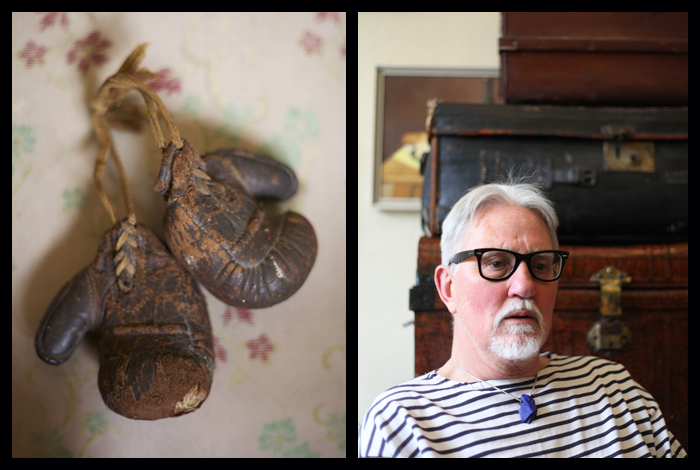
Reg’s grandmother Lily was one of 14. The girls slept inside a caravan and the boys slept outside between the axles. Their mum and dad bedded down in a tent. Lily married young, her new husband was a fighter. He fought 15 matches a day, each of 3 rounds, their travelling boxing ring provided income to the young family. Their son Reg grew up in the ring and began fighting at age 6. When war broke out petrol rationing forced gypsy families into a sedentary existence. Reg’s family settled in Bristol. They soon attracted the attention of the local education officer. Reg would have to go to school. His dad insisted that if he was to have a formal education it had to be the best. Bristol Cathedral School was prohibitively expensive but the headmaster said Reg could have a place if he could beat the school’s best boxer. At aged 13 Reg knocked out the school’s 19 year old champion. Years later Reg and Peggy had a son, Reg (Junior). The tiny boxing gloves were a present from father to newborn son. To this day Reg has never raised a fist.
22 Apr 2012
Tiggy’s childhood was characterised by a lot of not much. Her dad’s garage repaired more tractors than cars. Tiggy would note down the number plates of any cars that did pass through their small village but they were always the same few vehicles. The stable cost of petrol in the 50s meant that the signwriter rarely visited to re-paint the price on the pumps and when a glowing National Benzol sign was installed, showing the helmeted head of Mercury, a neighbour called to report seeing a fire across the flat Norfolk fields. To keep his three girls occupied Tiggy’s father would instruct them to find a stone with a hole on the gravelled forecourt. These stones were lucky. As children they never found a lucky stone but Tiggy has continued the search into adulthood, this is her collection.
15 Apr 2012
Caroline assumed ‘Delia’ was a friend of her mother-in-laws given how often she entered conversation, by contrast her own mother and grandmother were both doctors and food at the end of a working day was simply fuel. When Caroline moved to London in 2000 her curiosity and greed had her crossing the city to buy ingredients, travelling was less about sight-seeing and more about seeking out the most interesting places and things to eat. She discovered a ‘beautifully ugly’ cake, the antithesis of the cloying prettiness of a cup cake. It looked like it was made of squashed flies but tasted of creamy butter and delicately sweet spice. Caroline still makes the special trip to buy Eccles cakes and they still take her back to the excitement of when she first moved to the city.
08 Apr 2012
Fabian’s father stood stock still, dwarfed by the anchor, the Rhine running behind him. Fabian framed him in the view finder and pressed the shutter. The camera was a basic 50s model, a Pouva Start from East Germany. At home the bathroom smelt of vinegar, it served as their make-shift darkroom. They stuck the wet prints to the tiled wall to dry. The photograph of his silhouetted father has travelled with Fabian. Where we might see it as ‘noir’, see it’s sharp contrast in tone and it’s composition, Fabian simply remembers home, his dad and making something together. The photo, for all it’s apparent sophistication, was shot in an entirely unmannered way with an untrained eye and exposed with gut feeling. Fabian doubts he could produce anything as evocative today as he did that day – a seven year old boy out with his dad taking pictures by the river.
01 Apr 2012
Danyal packed very lightly into a large bag. The trip to Sudan followed one to Uganda where he’d performed Mozart’s Requiem as part of an international student orchestra playing with local singers. During that visit, Ugandan musicians had demonstrated the Adungu. The instruments ranged from 1 to 5 foot in length, the largest being straddled as it’s played. None would fit in his bag so the Sudanese trip provided an opportunity to take one home. In Khartoum they played to 3,000 people. This was British folk re-imagined, played on Japanese and Jew’s harps. After the performance they were offered a trip to the local Museum of Music by Dafa Allah Elhaj Ali, its manager. The museum had several Adungus, one of which Dafa insisted Danyal take. Danyal made a donation to the museum and packed the Adungu into his ample bag.
25 Mar 2012
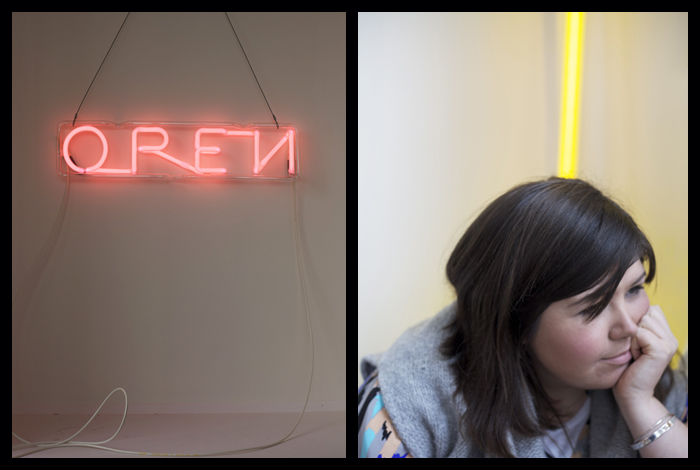

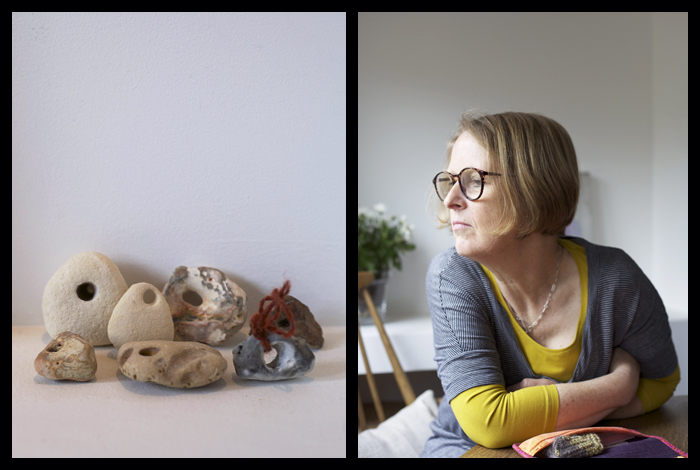
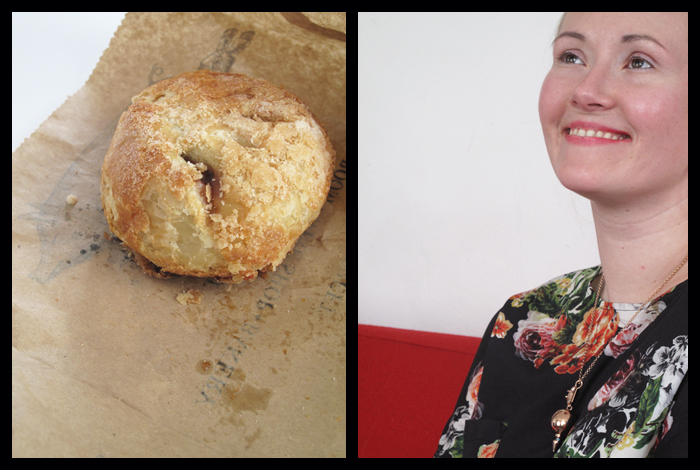
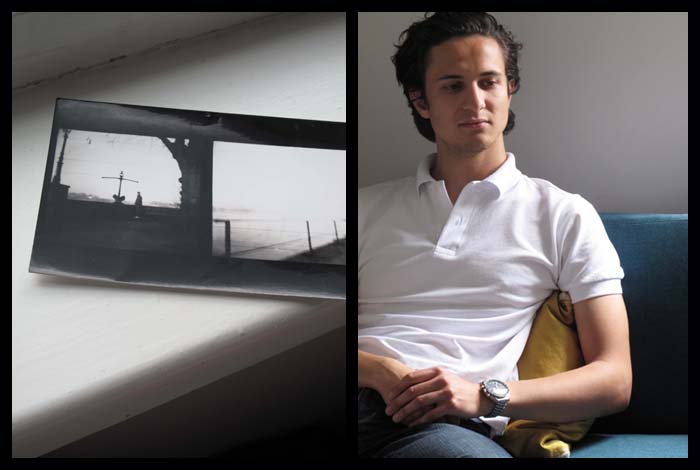
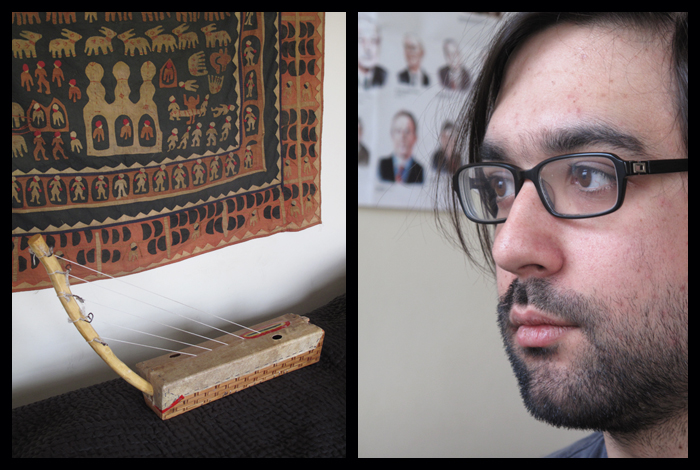
 Subscribe to RSS
Subscribe to RSS Follow us on Twitter
Follow us on Twitter